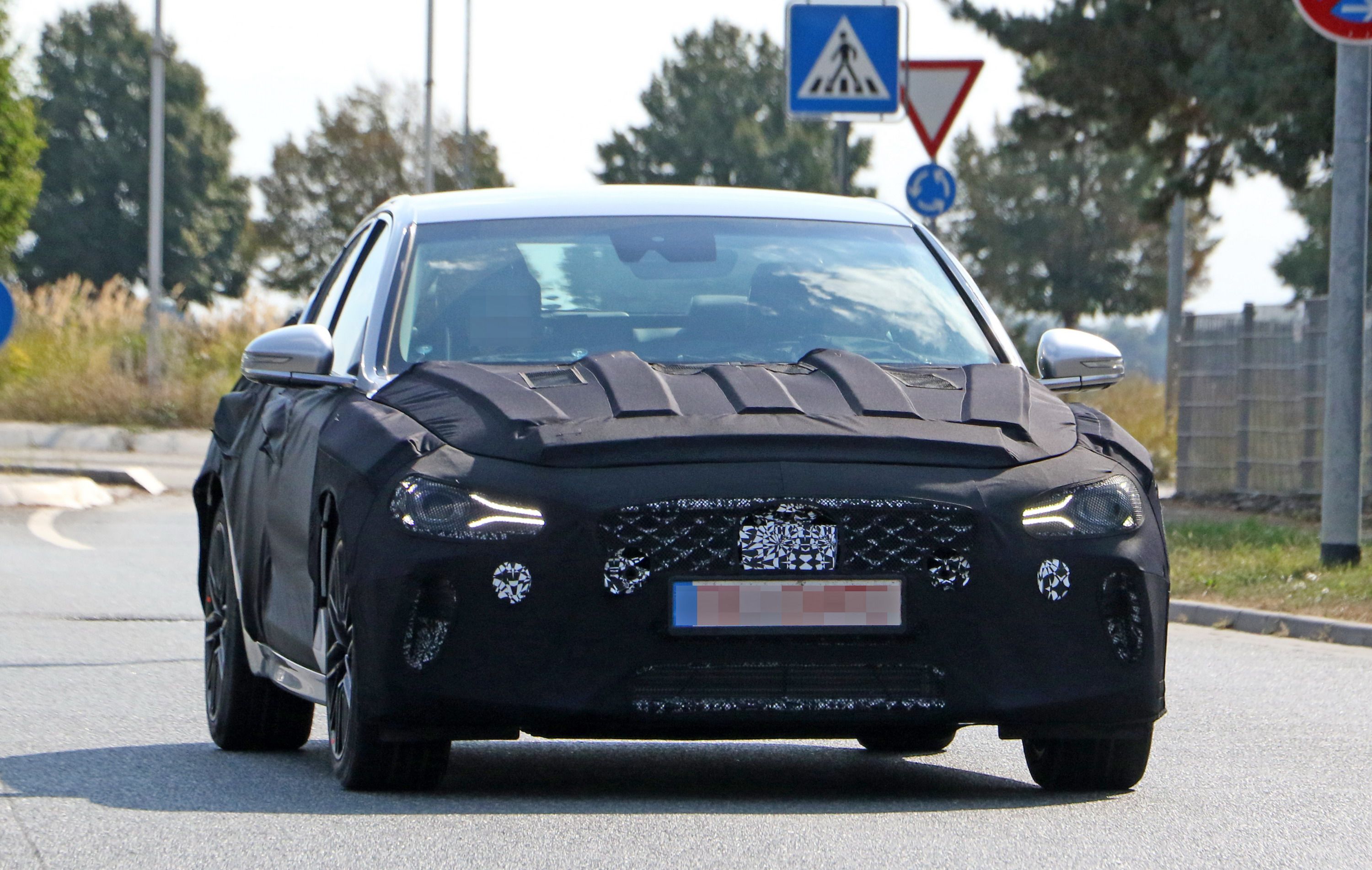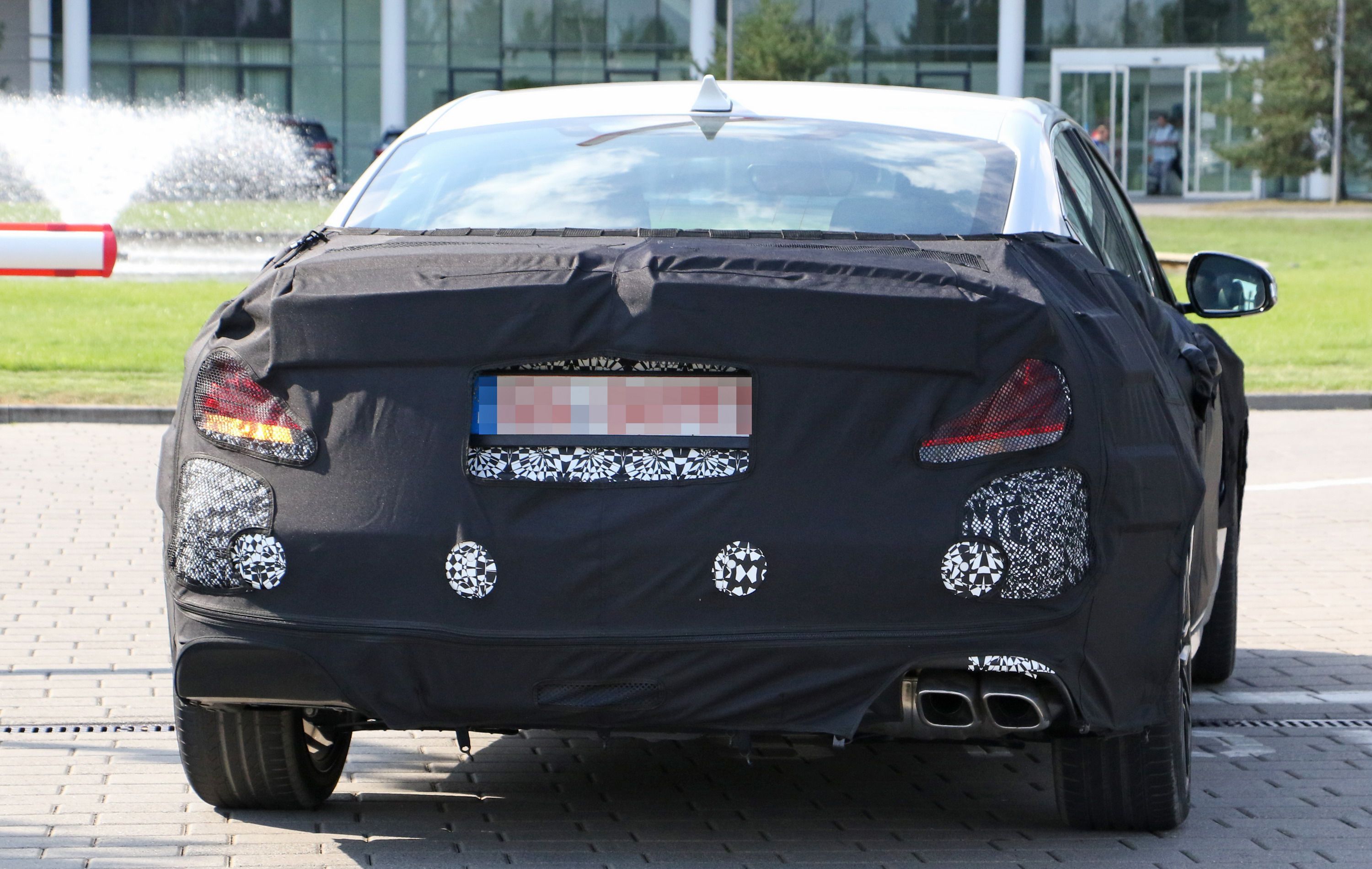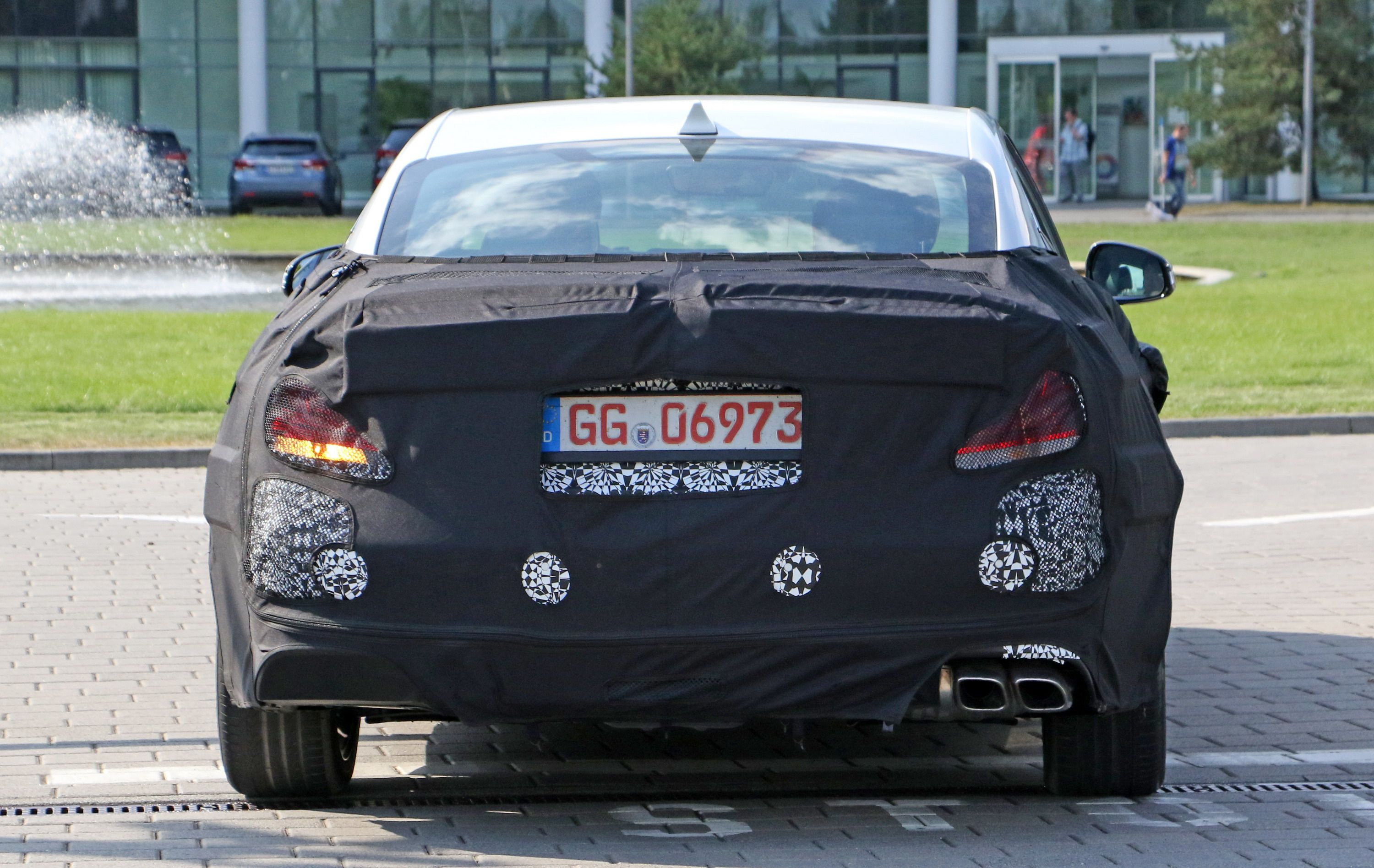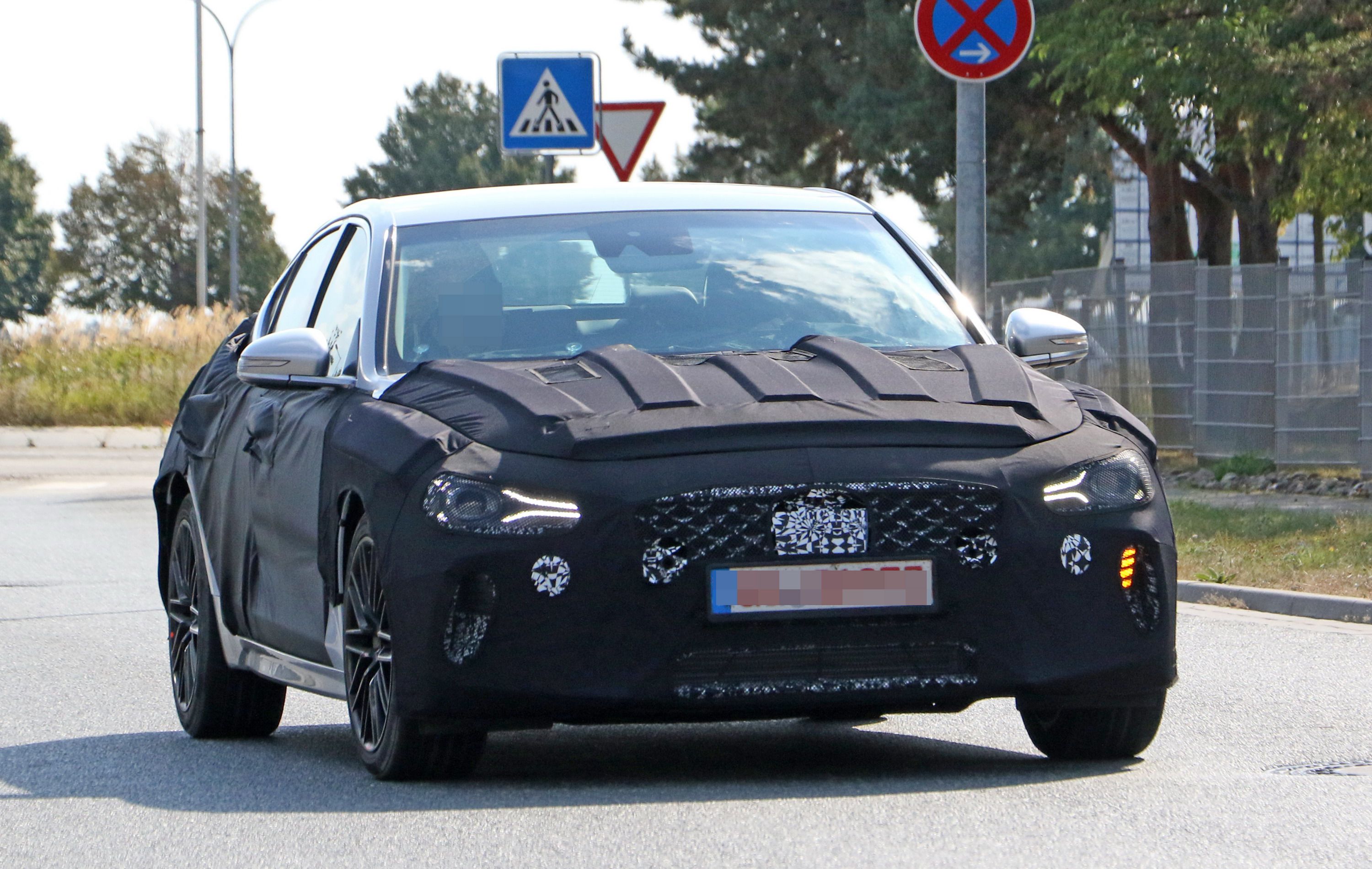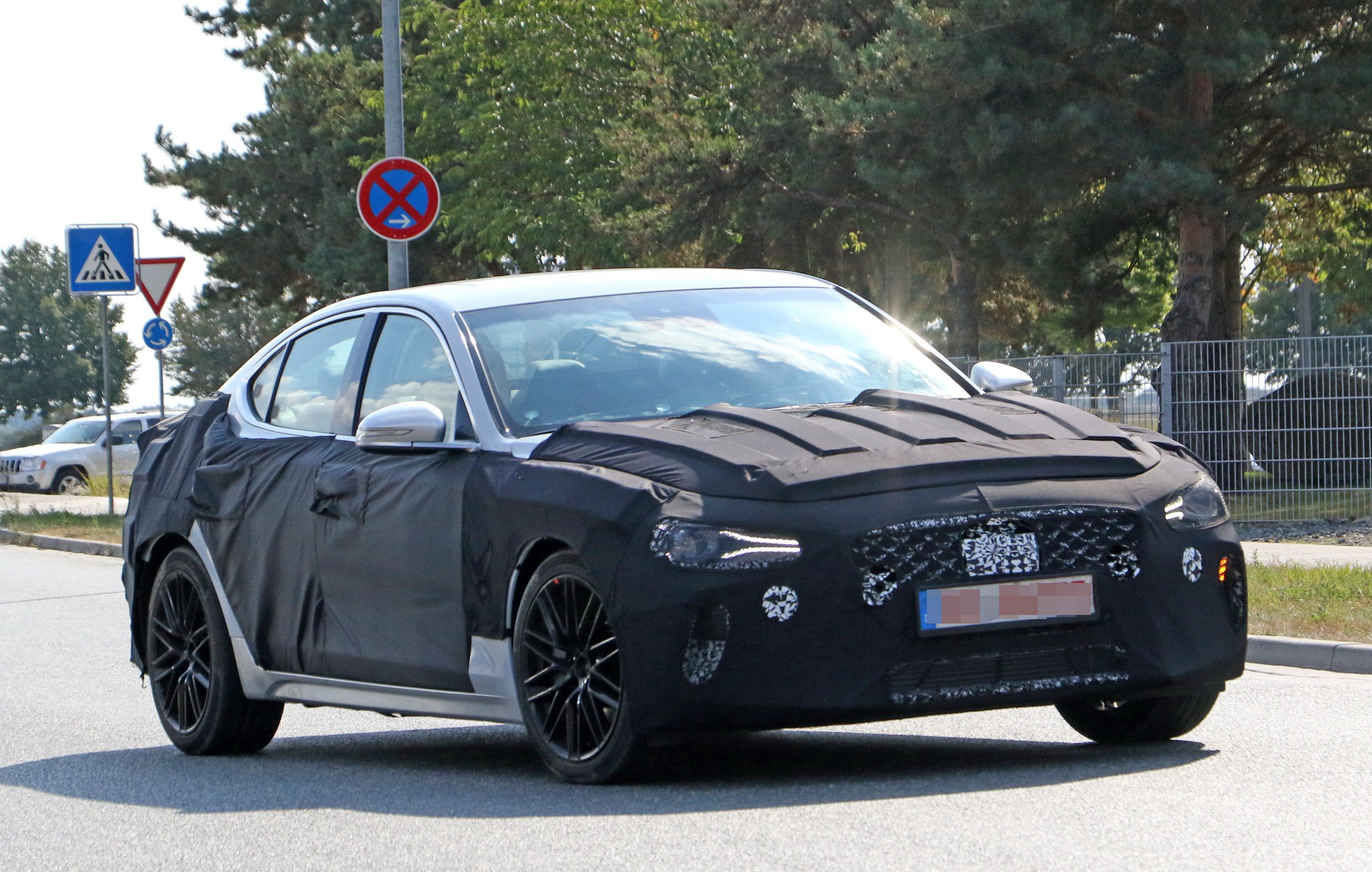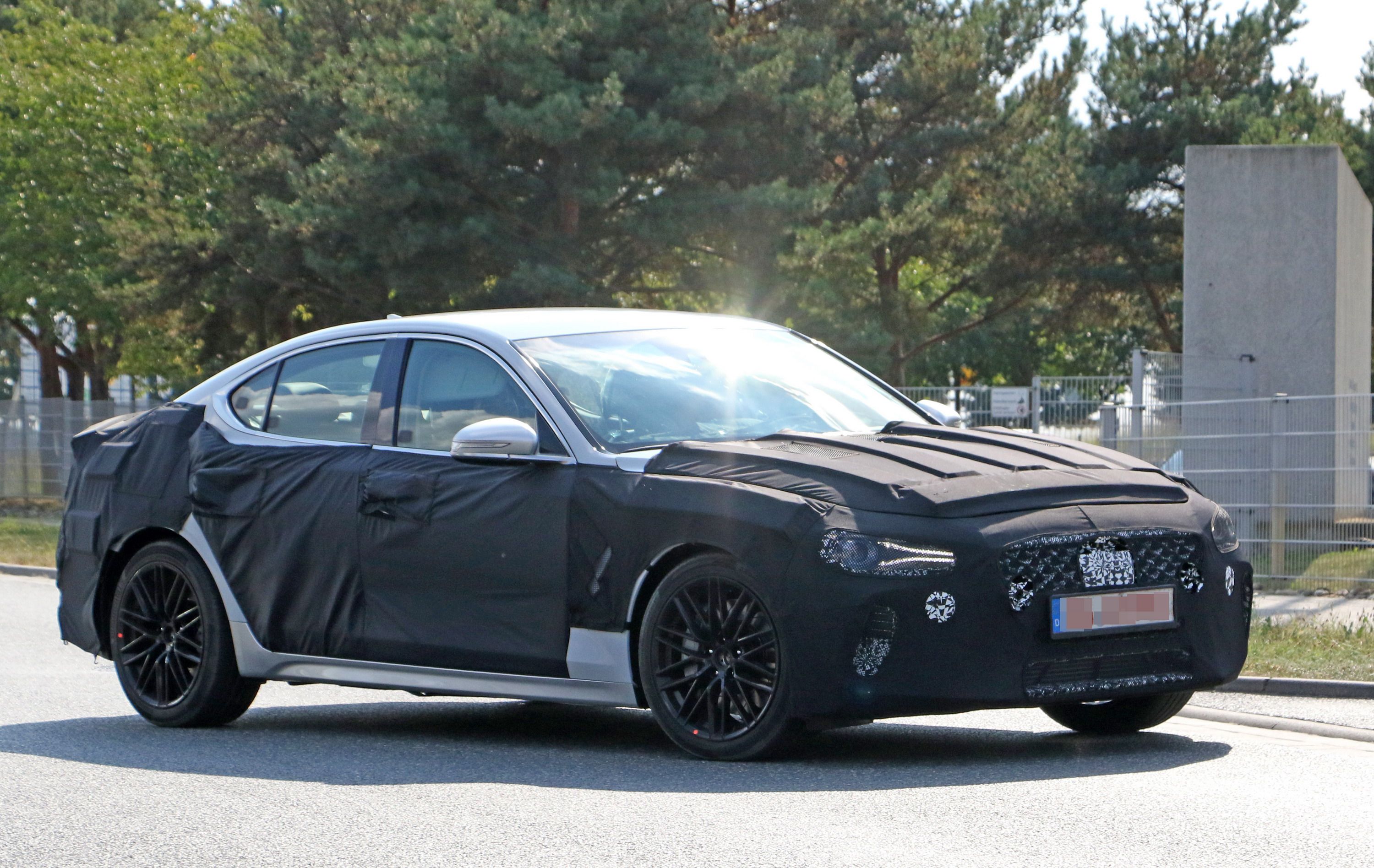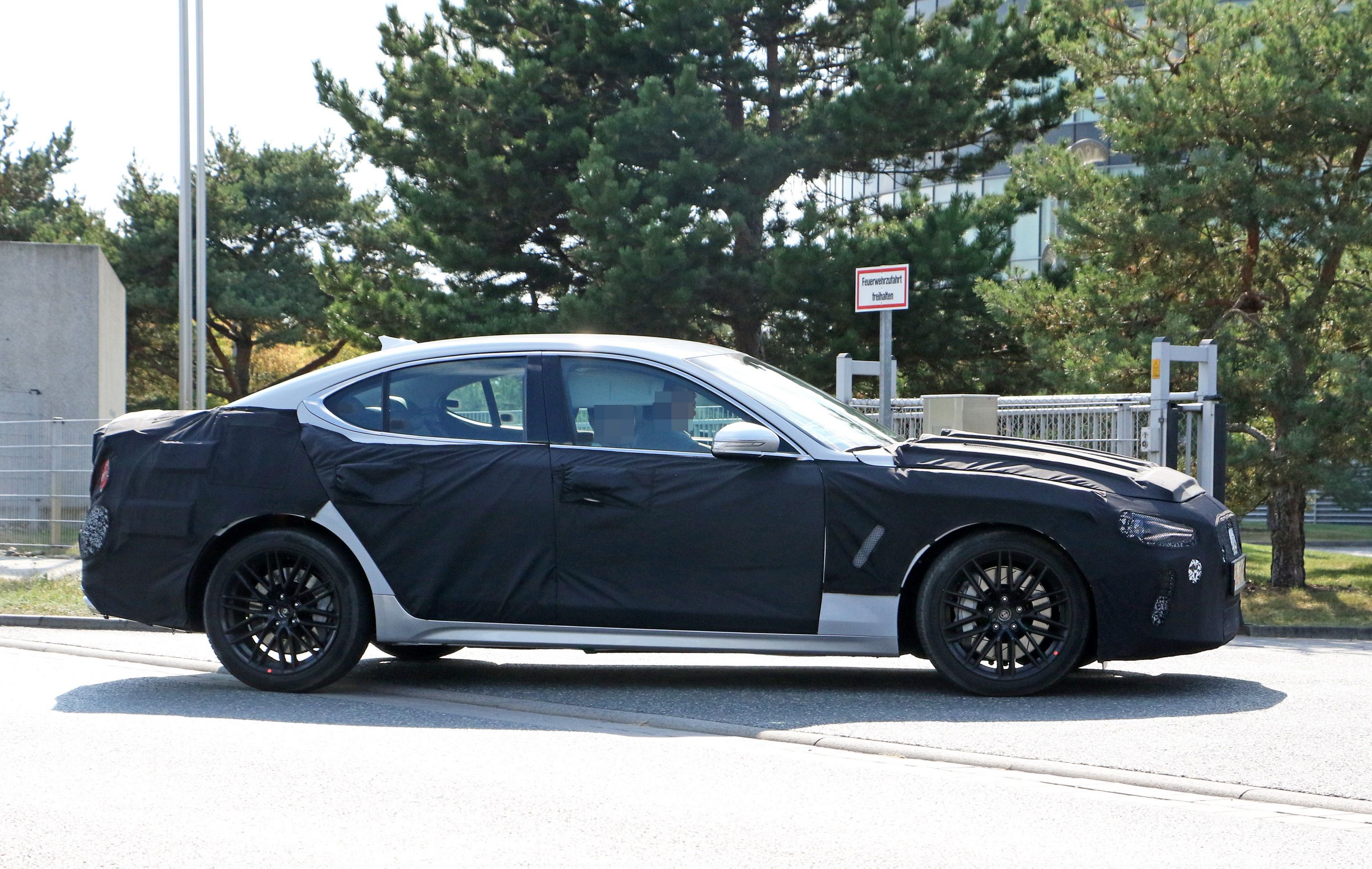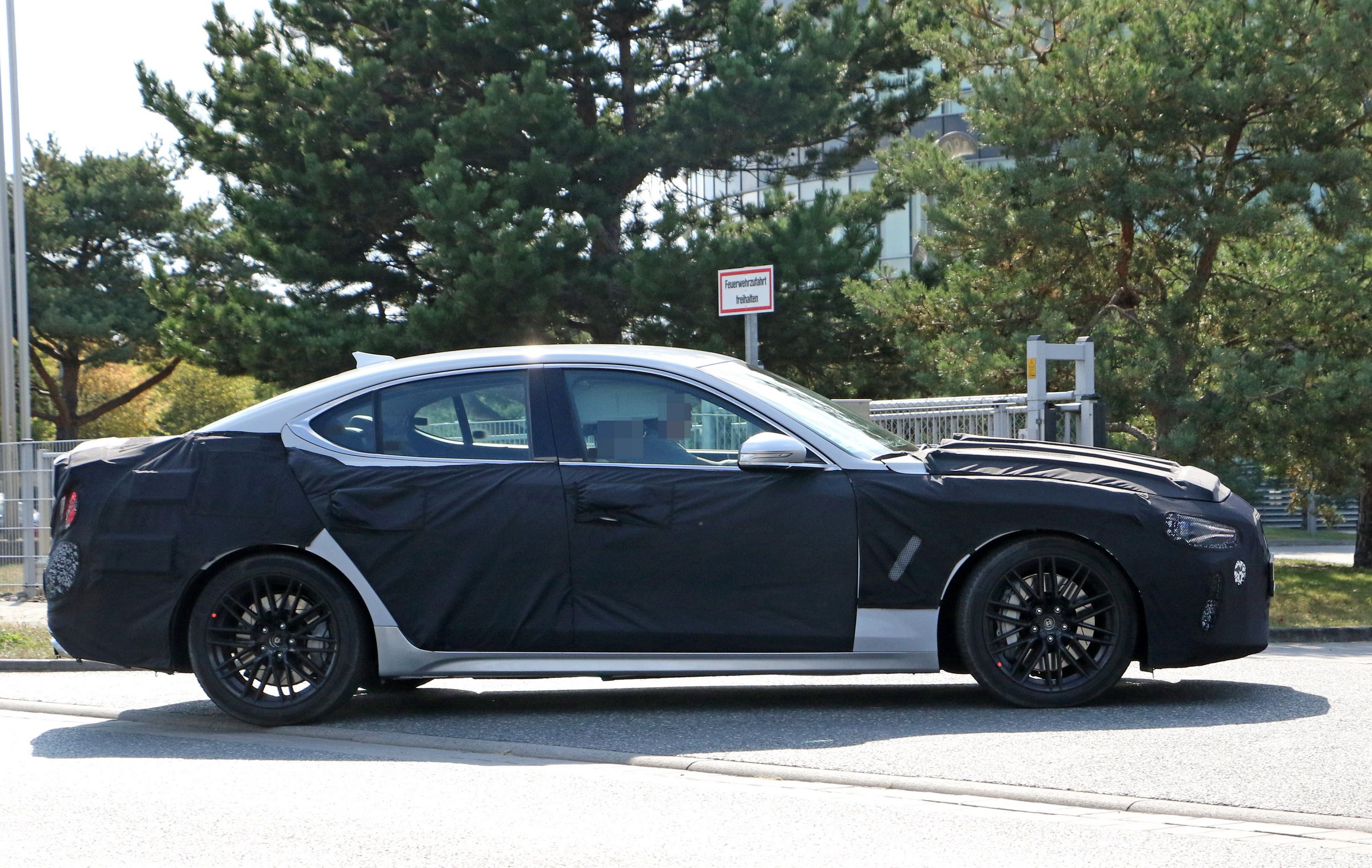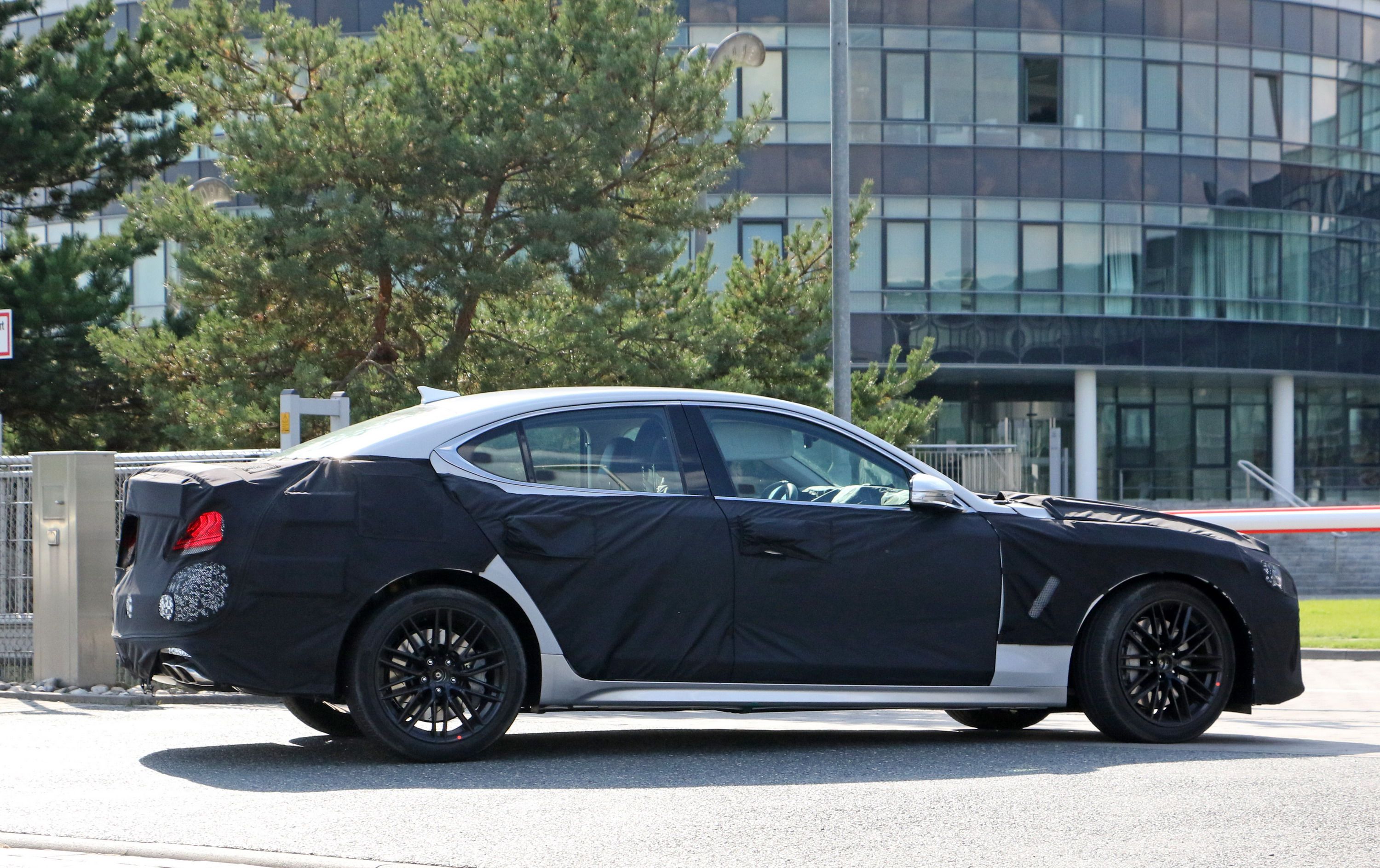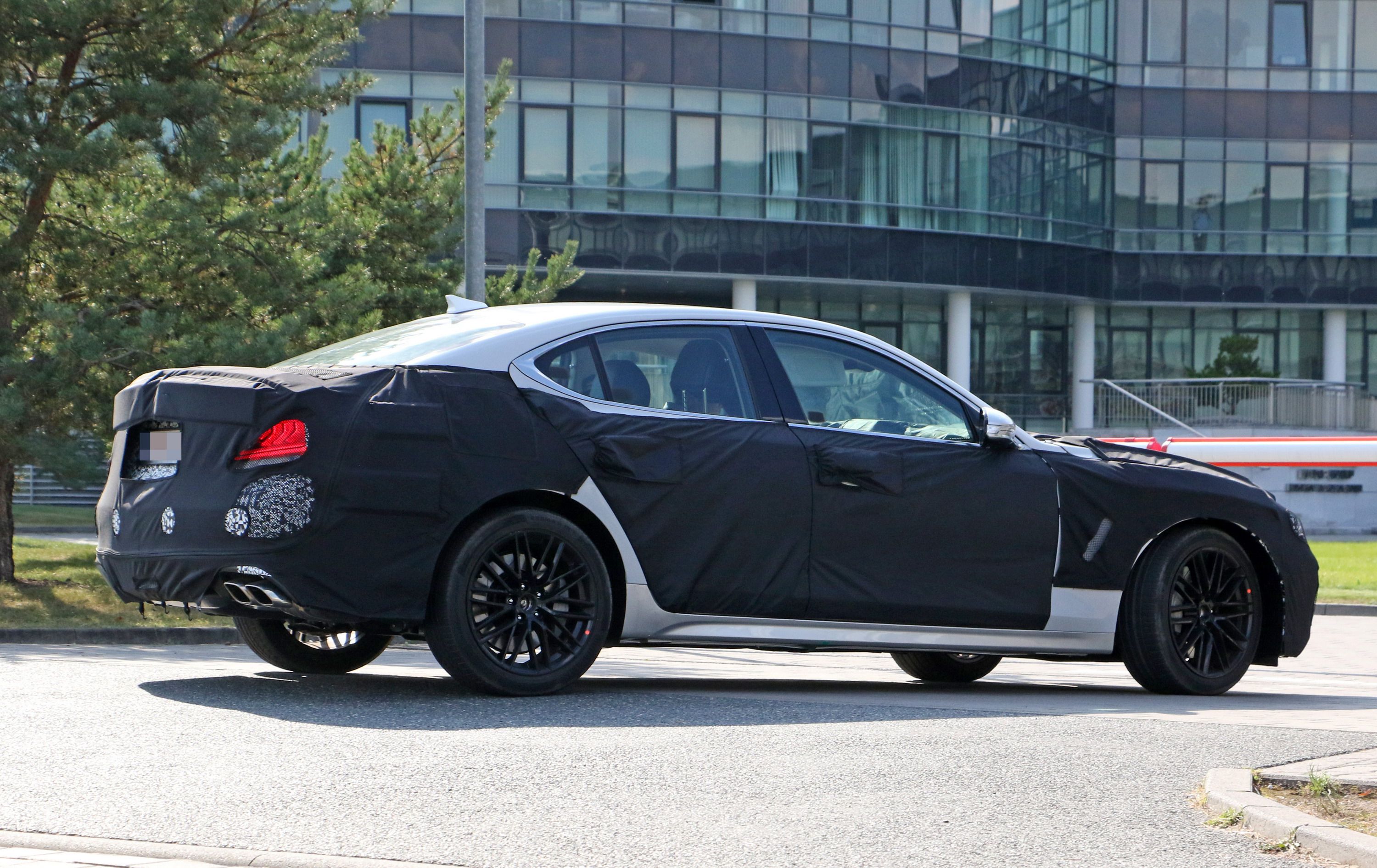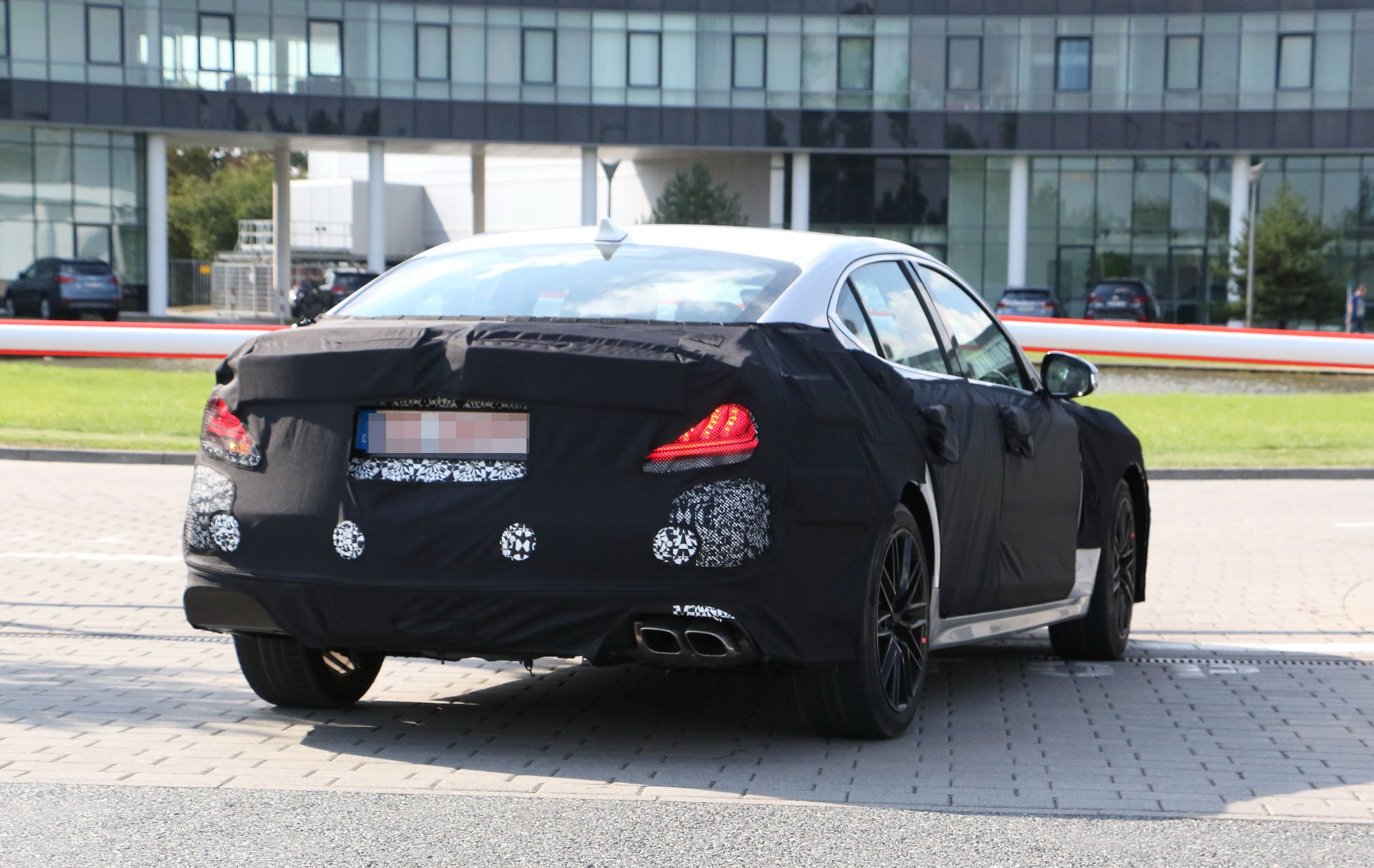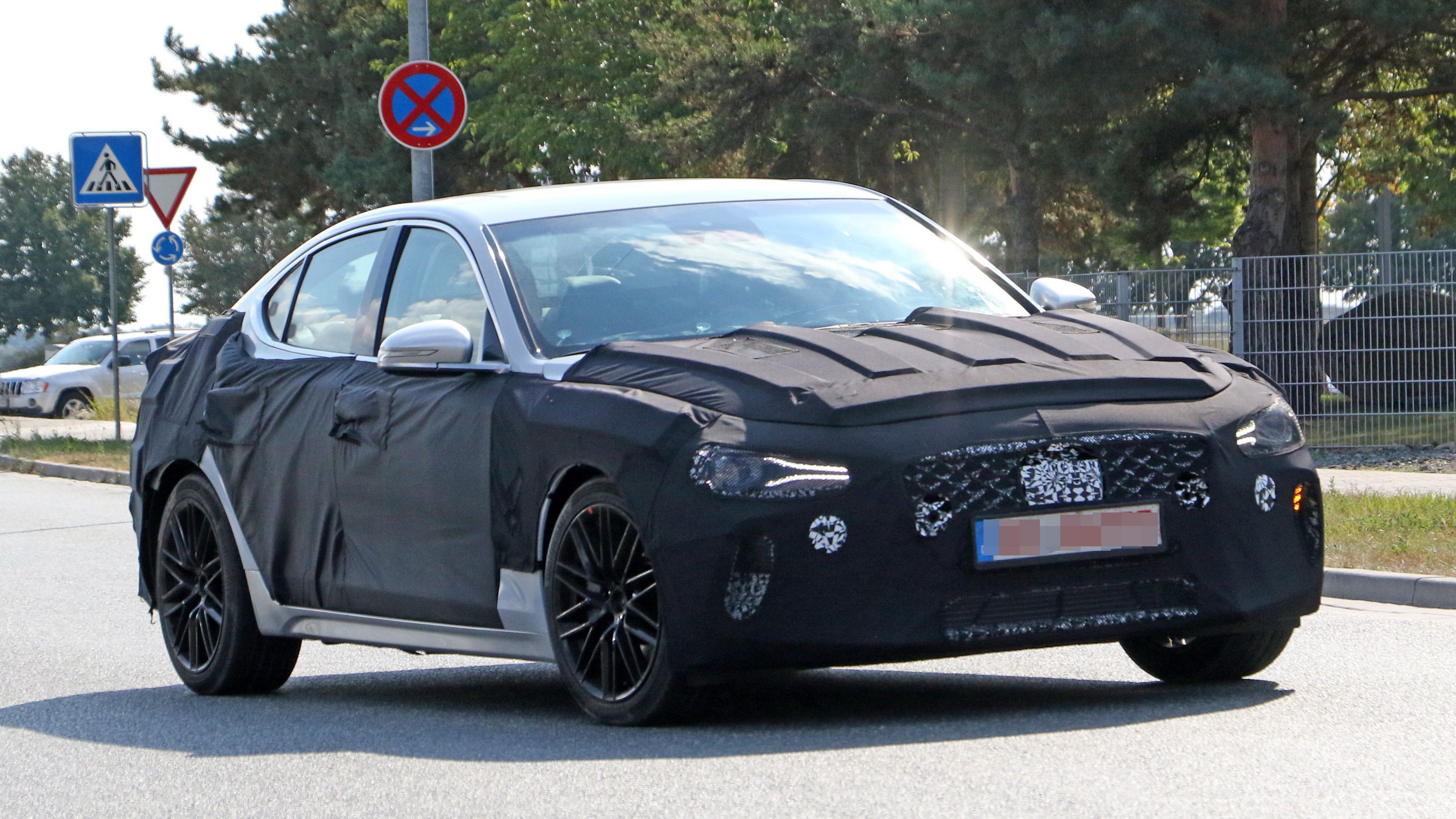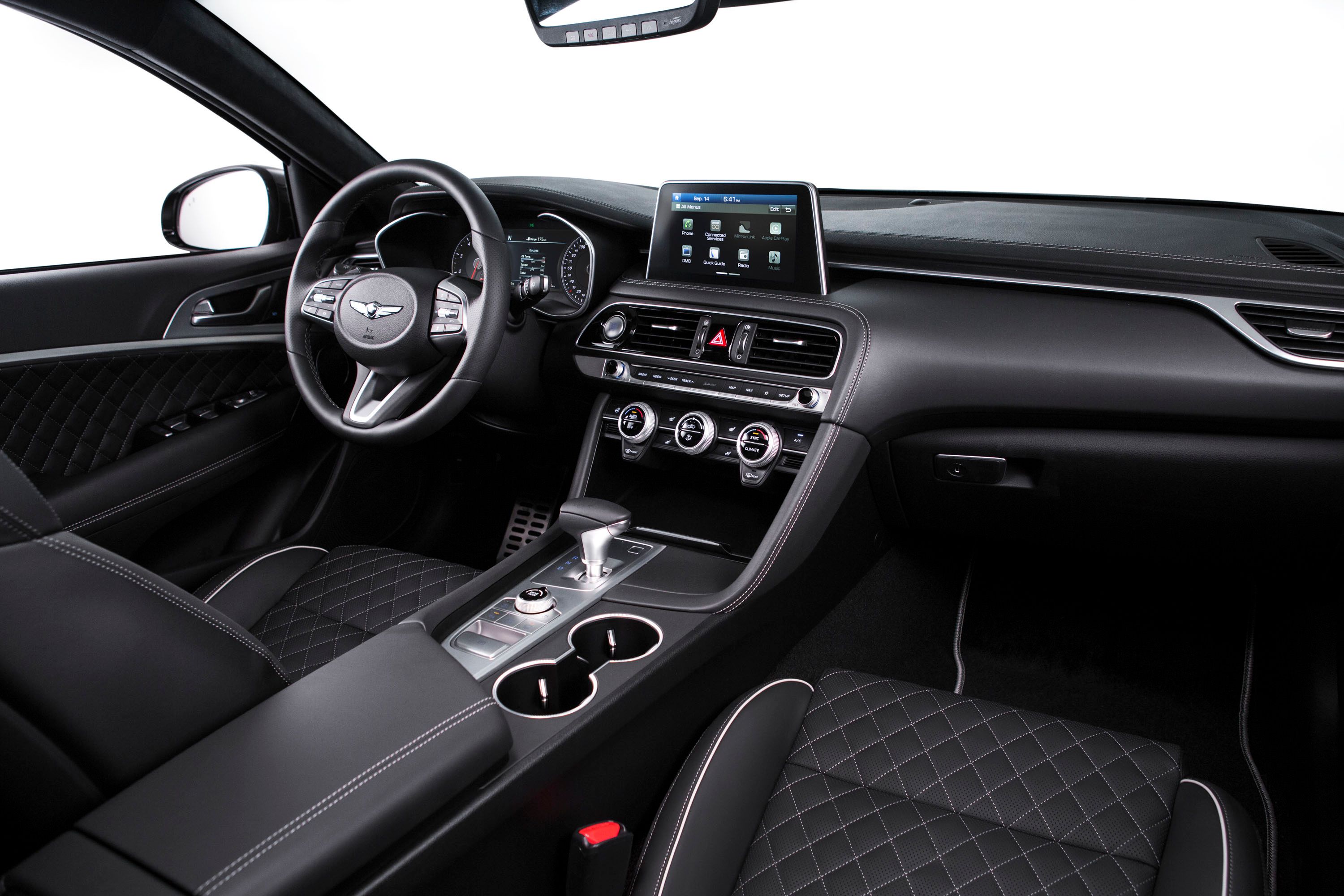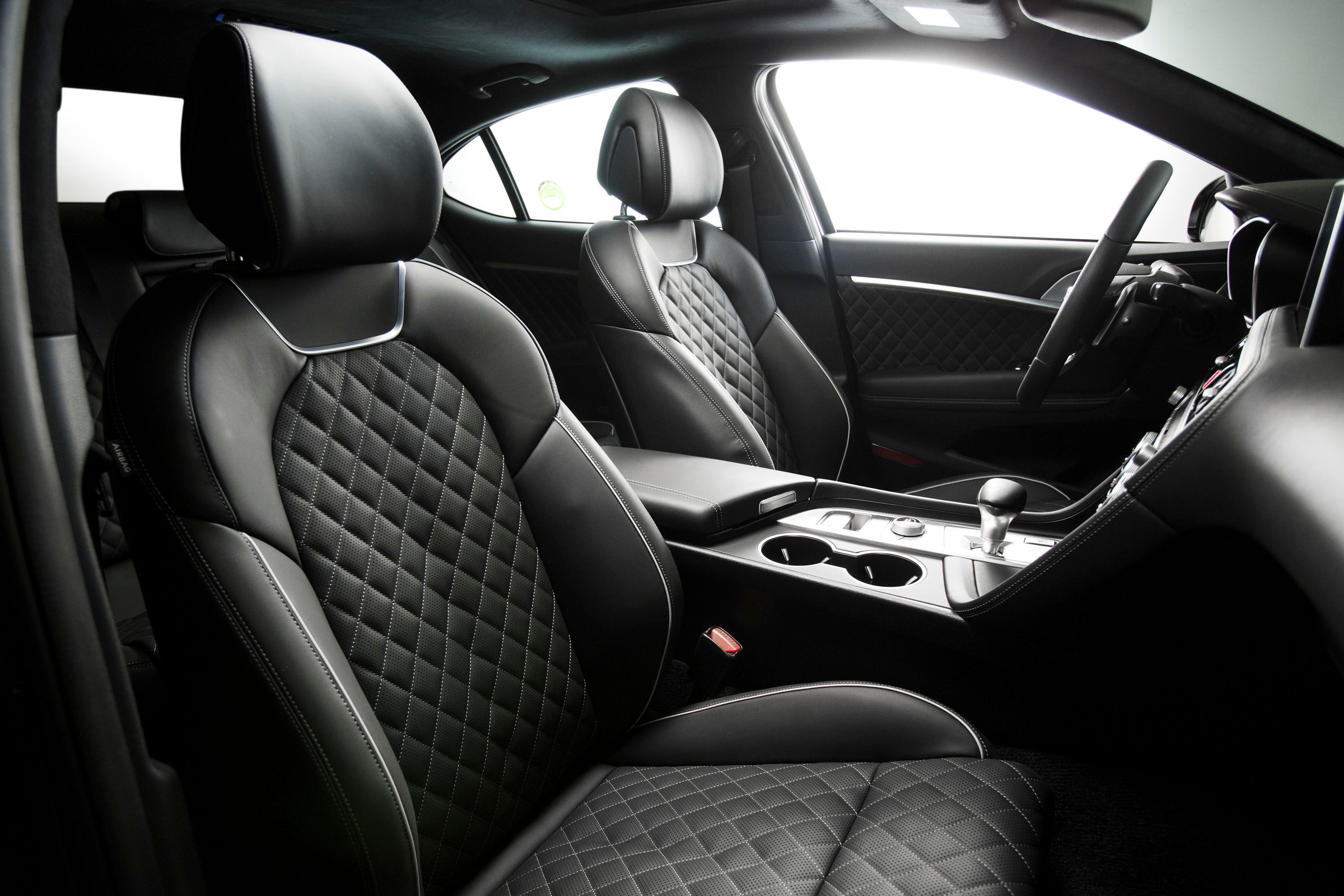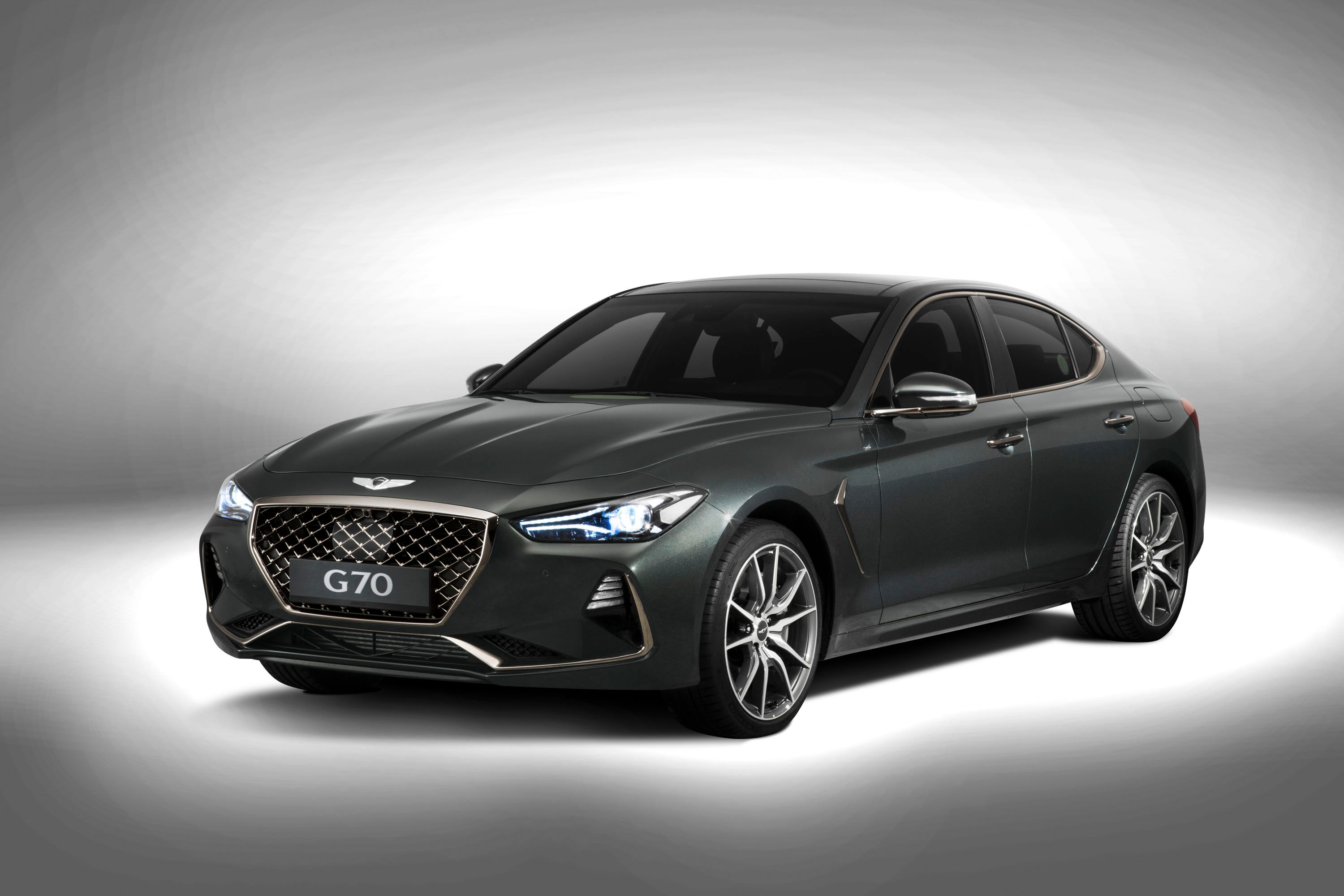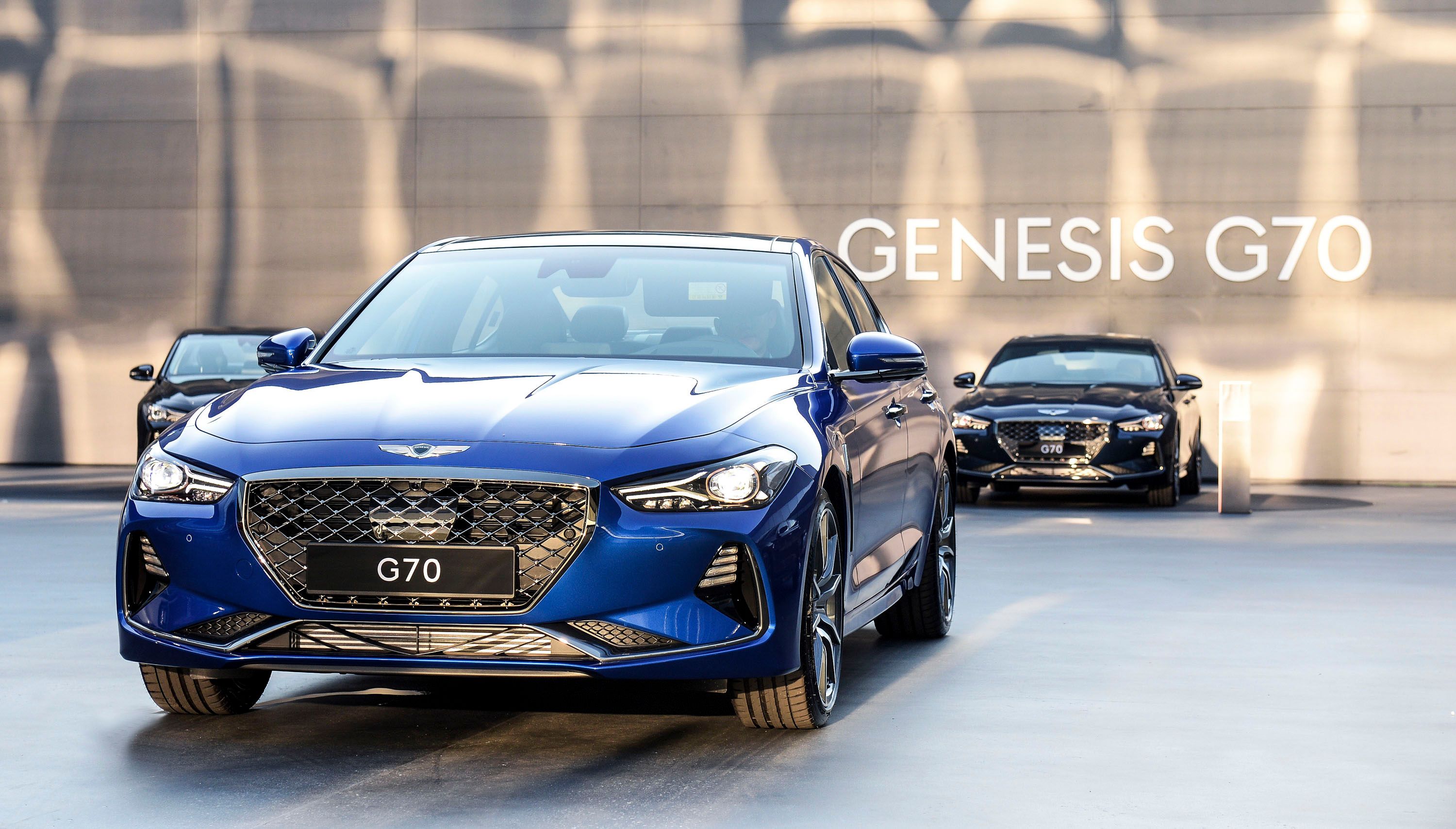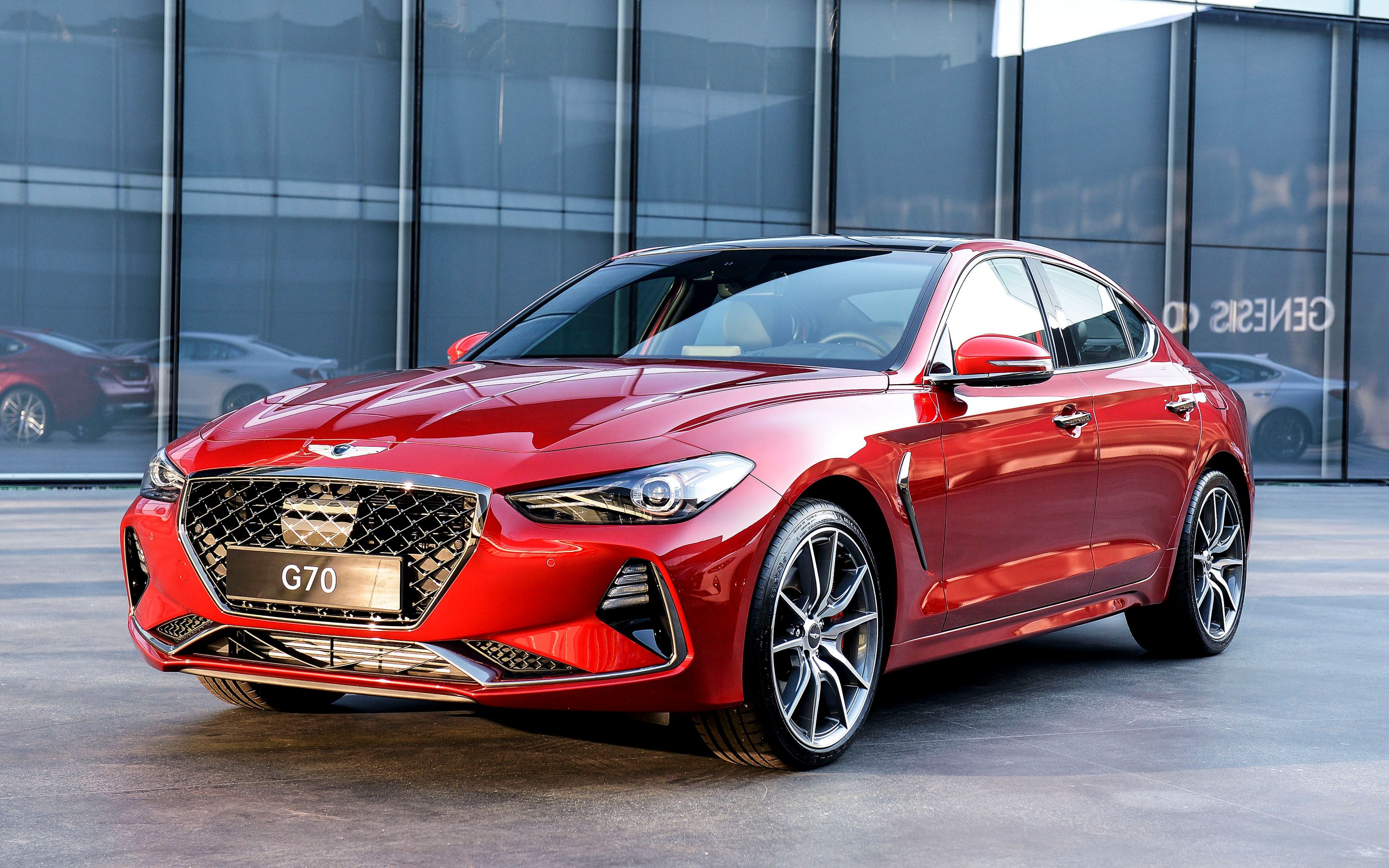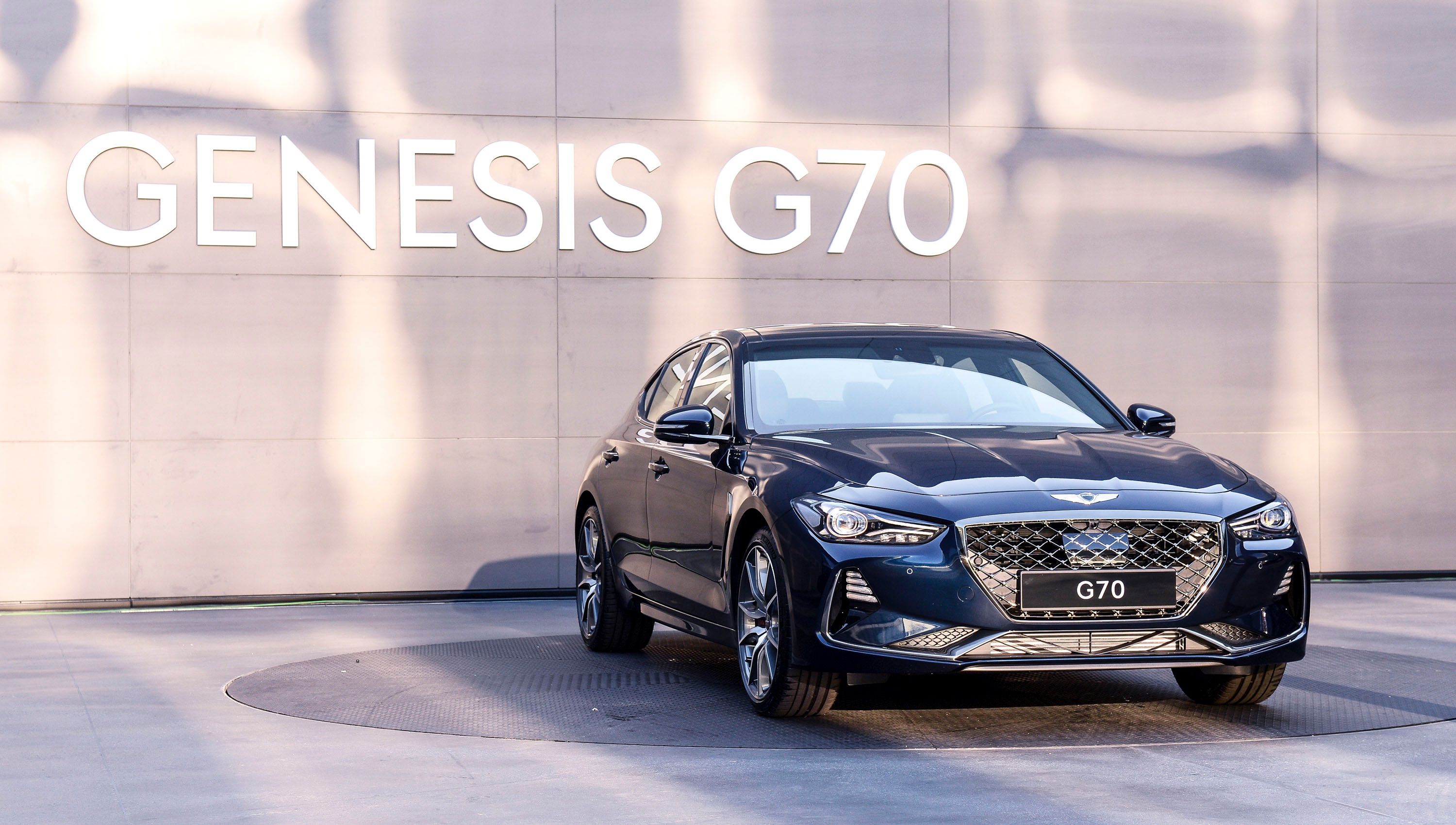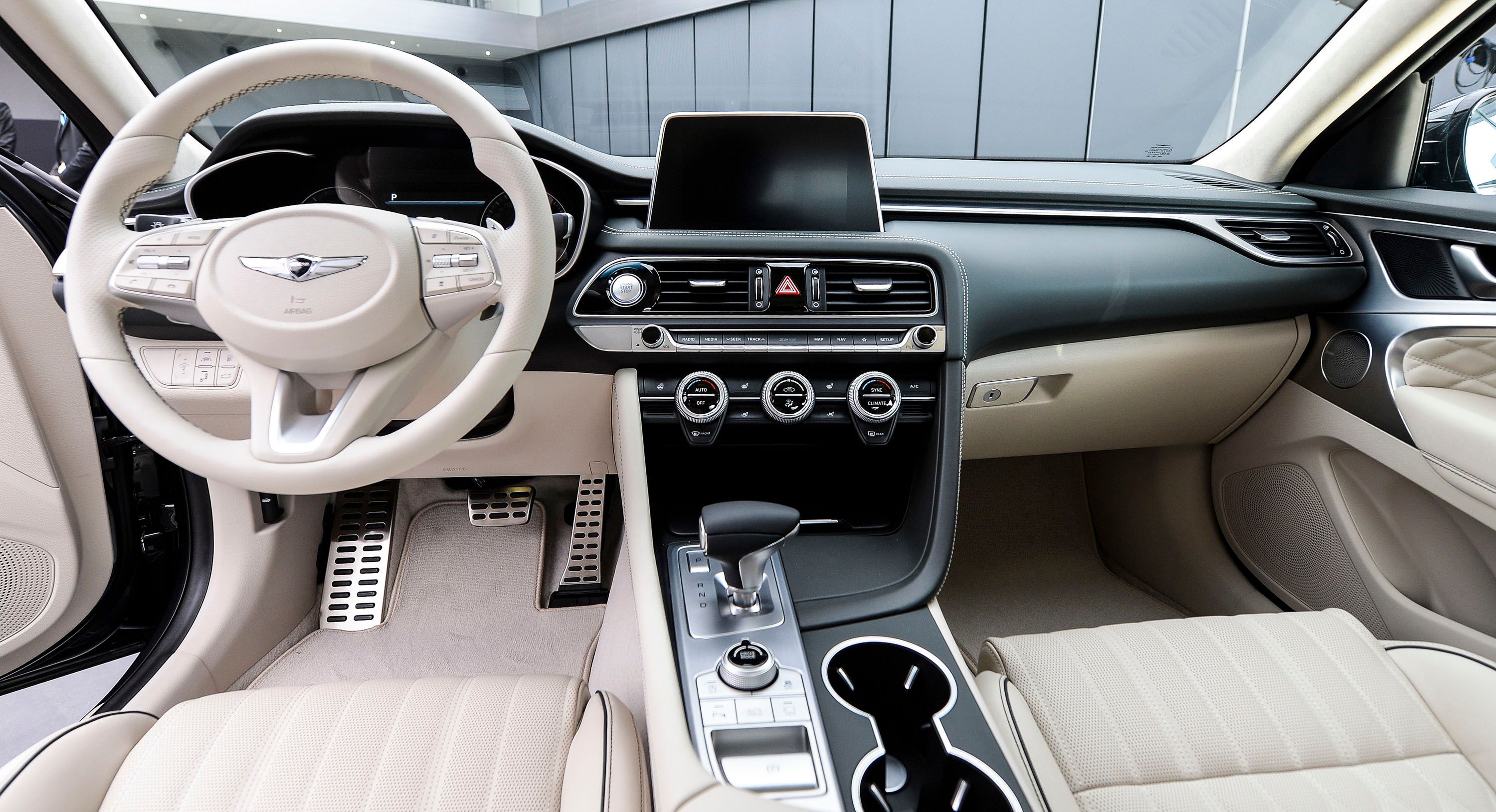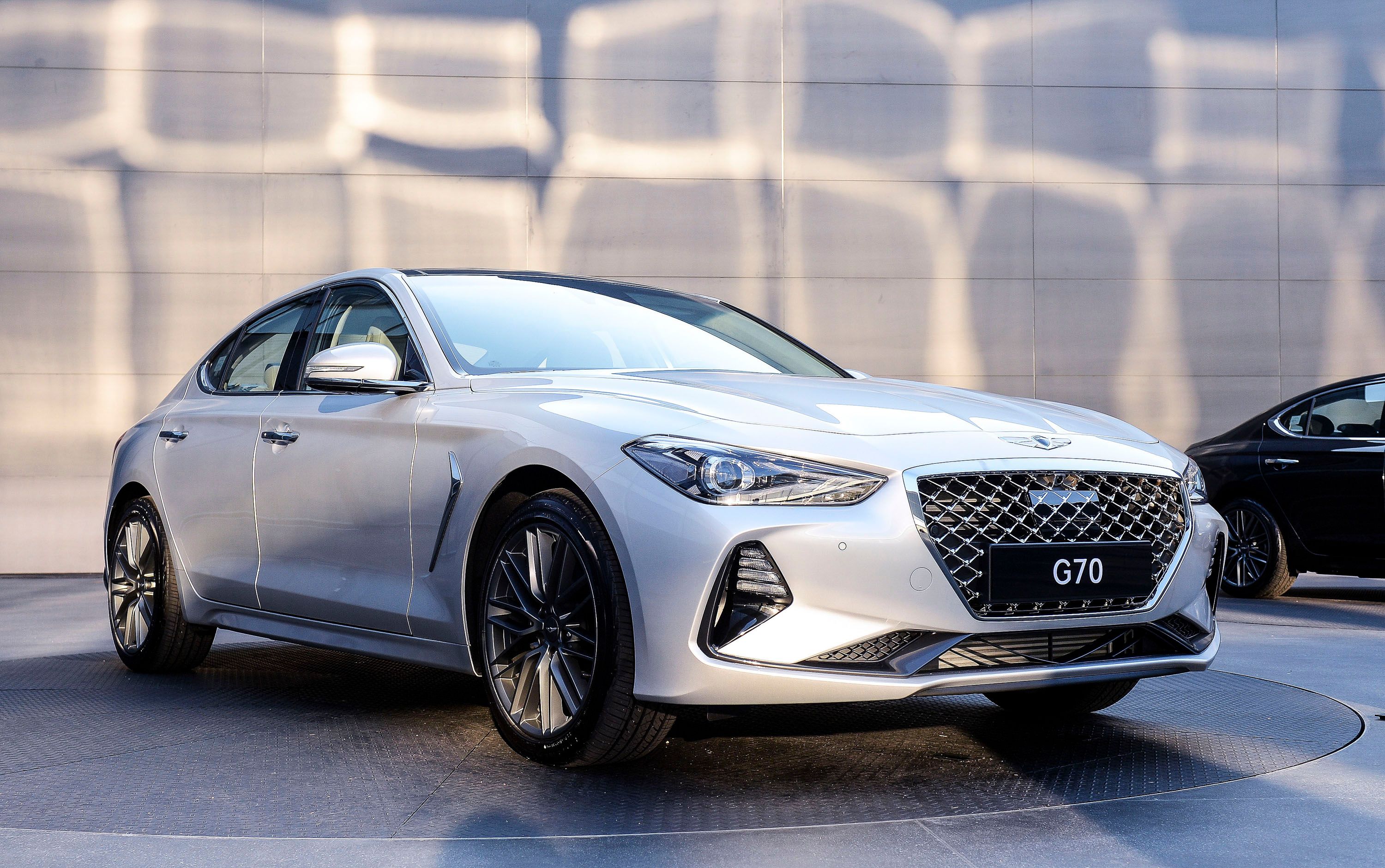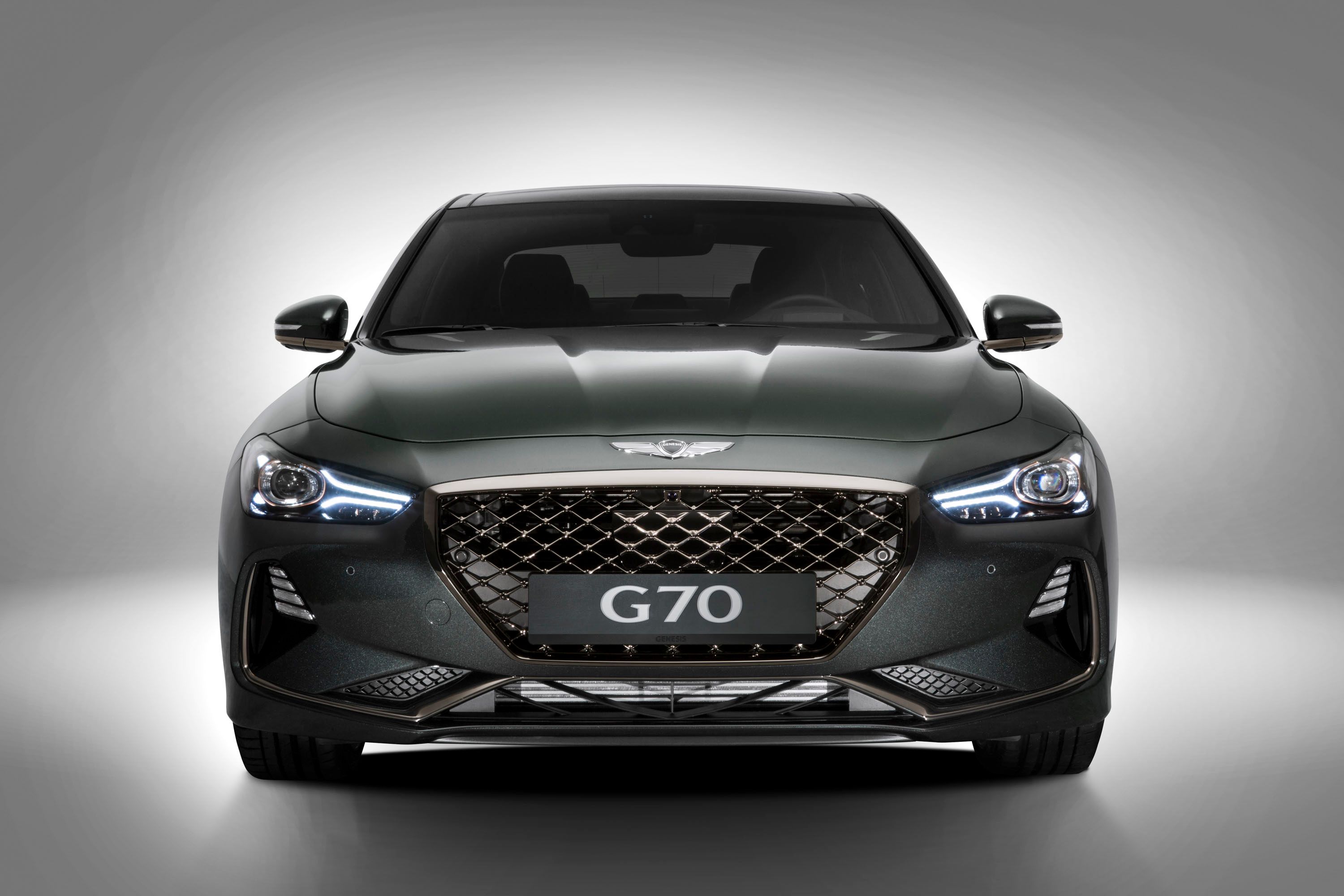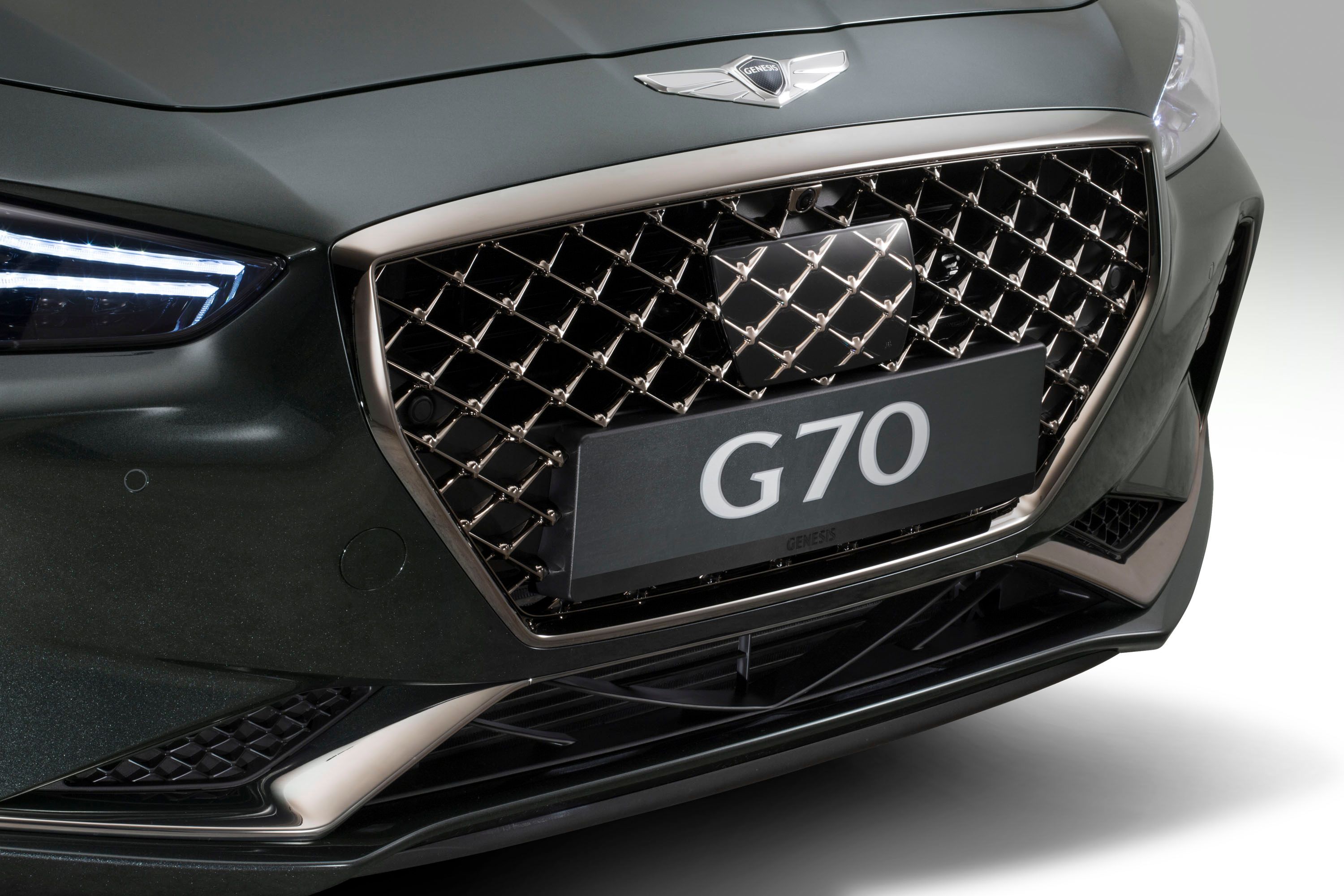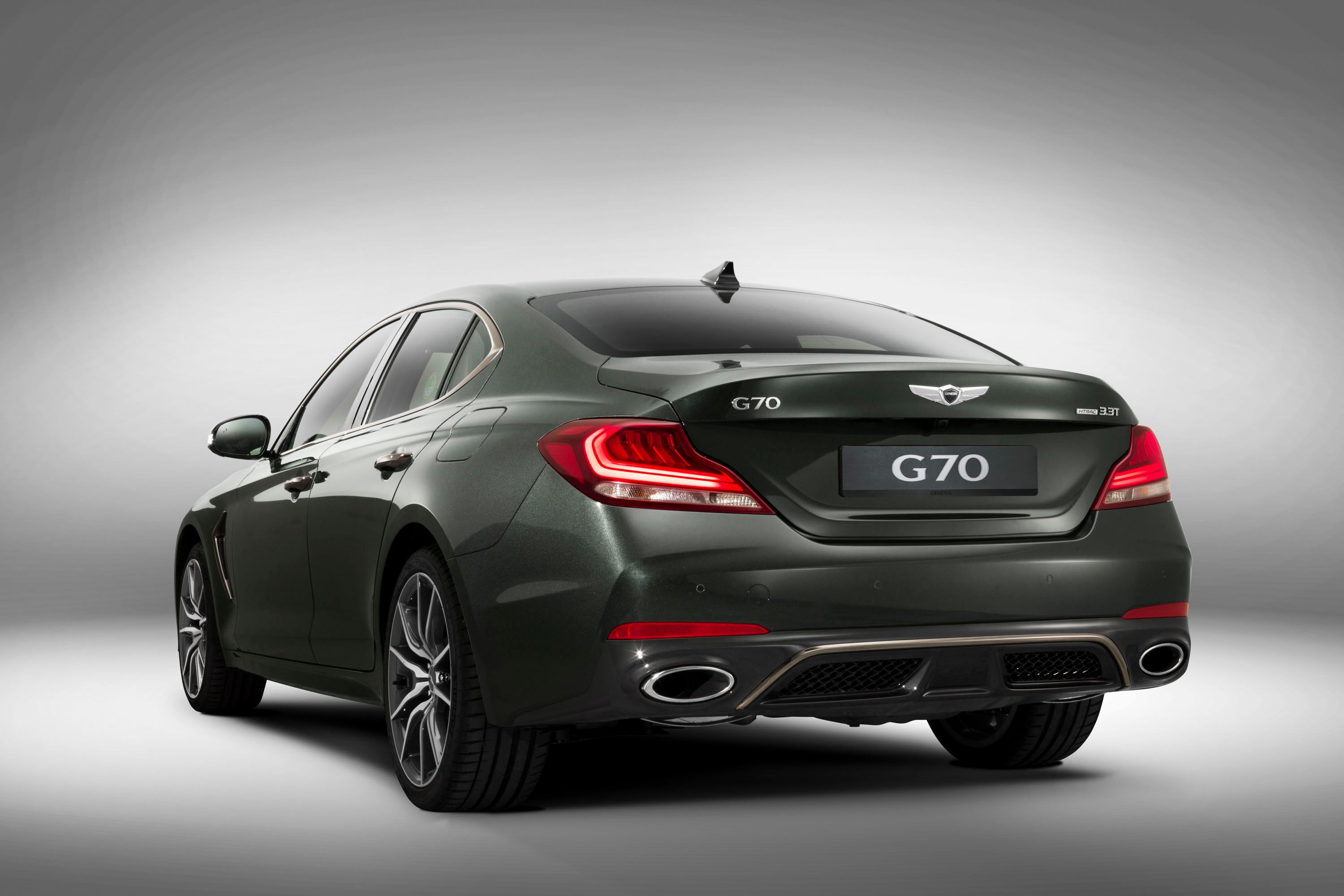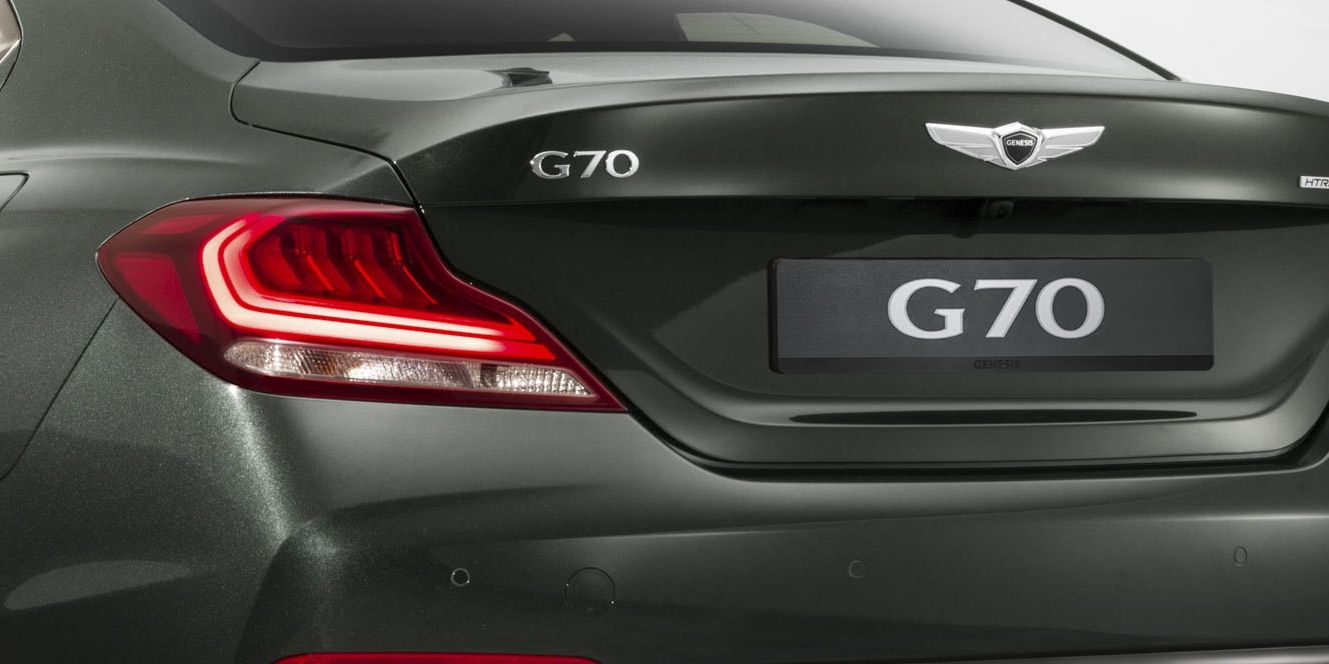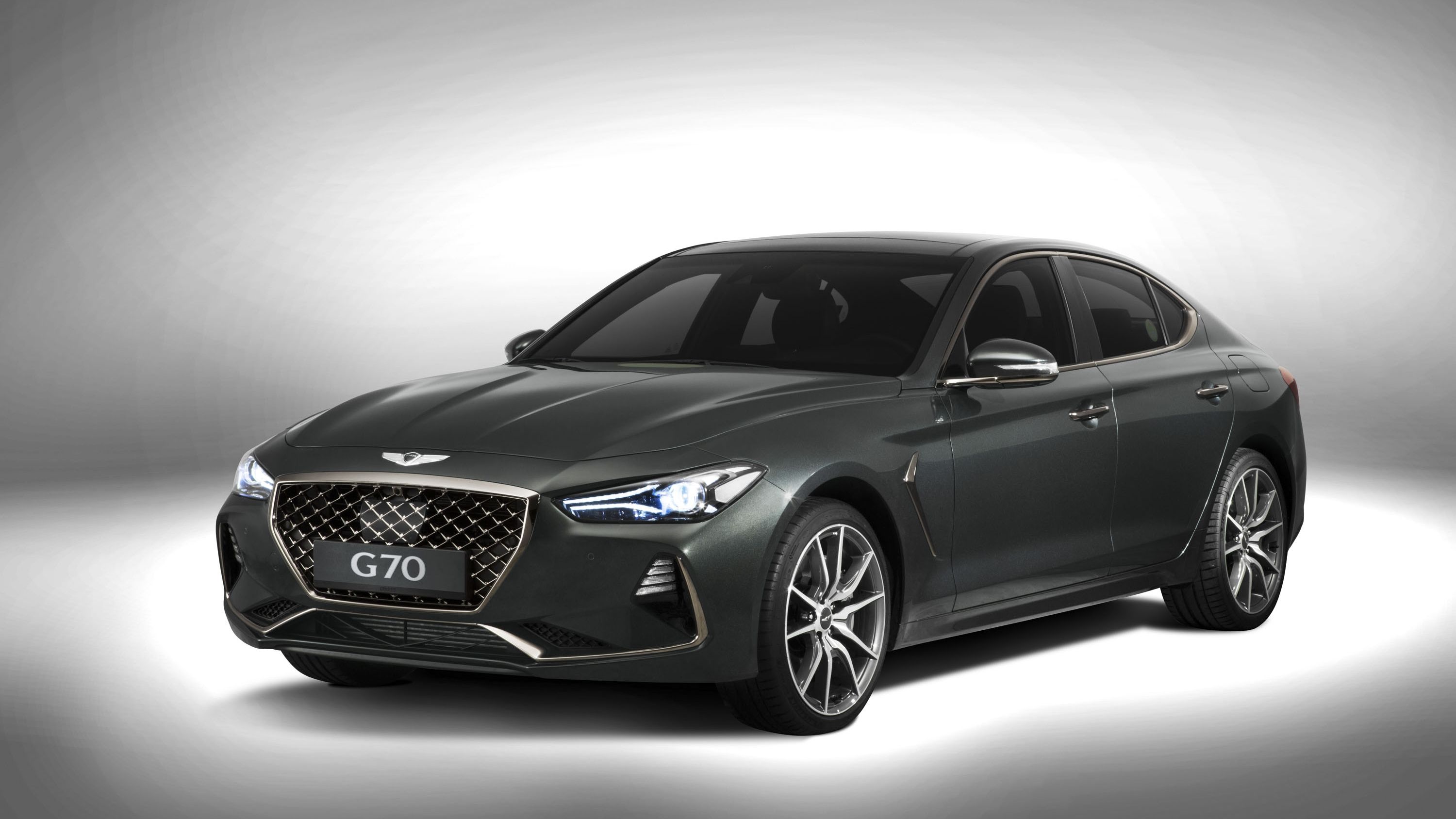The Genesis brand was introduced in 2015 as Hyundai’s premium division. The name was derived from the Hyundai Genesis, the company’s full-size sedan, which became the Genesis G80 after the rebranding. Before the G80 debuted, the newly-founded brand introduced the G90, a redesigned, more luxurious version of Hyundai’s range-topping sedan, the Equus. Come 2017 and Genesis introduced its third sedan. Called the G70, it is aimed at the premium compact market, which is currently populated by offerings like the BMW 3 Series, Mercedes-Benz C-Class, and Cadillac ATS.
Part of the company's plan to roll out several new models by 2020, the G70 is Genesis' last effort in the car market for the time being, as the Korean brand wants to focus on launching a full SUV lineup too. The G70 is slated to go on sale in the U.S. later in 2017 with at least two engines, a 2.0-liter four-cylinder in the base model, and a 3.3-liter V-6 in the Sport versions. A diesel is also available in Korea, but we might not see it cross the pond to North America anytime soon. Much like the larger G80 and G90, the G70 comes with a solid package of standard features and promises to deliver best-in-class safety, but more on that in the review below.
Continue reading to learn more about the Genesis G70.
2018 Genesis G70
- Make: Array
- Model: 2018 Genesis G70
- [do not use] Vehicle Model: Array
Teaser video
Exterior
The smallest sedan in the Genesis lineup boasts a familiar appearance. Although more compact, it borrows the athletic, yet graceful design of the bigger G80 and G90. At the same time, it feels a bit more dynamic due to its slightly more angular design cues.
Up front, we can spot many of the familiar Genesis features, starting with the crest-shaped grille. It's basically a shrunken version of the G80 and G90 and it has the same chrome frame, but while the non Sport versions of the bigger sedans have horizontal bars, the G70 sports a honeycomb-like pattern.
The headlamps are based on the G90's, with angular edges and a slimmer shape toward the grille. Unlike the G80, which has larger, more elegant units, the G70 has a more angrier look. Down below, the G70 differs quite significantly from other Genesis sedan, mostly due to the vertically oriented side vents being placed higher in the bumper. The slim center intake is also different, with two angled winglets adding further sportiness to the design.
The profile of the G70 is a little more athletic than its bigger siblings, but not overly sporty. While the beltline is noticeable, it doesn't stand out too much, allowing the sedan to exude an elegant feel. However, the hockey stick-shaped trim on the front fenders, the sculpted side sills and lower door areas, and the slightly more muscular rear haunches give the G70 the athletic look a compact sedan needs to compete against the likes of the BMW 3 Series and Mercedes-Benz C-Class. The side view is rounded off by a set of multi-spoke alloy wheels.
Around back, the G70 has a nicely sculpted trunk lid area, flanked by LED taillights inspired by those seen on G80. The sporty bumper includes a sporty, diffuser-like element on the range-topping model, while two oval exhaust pipes are integrated into the apron on each side.
Ten exterior colors are available for the G70, most in the usual and very popular shades of white, gray, and black. The palette includes Platinum Silver, Carbon Metal, Marble White, Titanium Black, Racing Gray, Graceful Gray, Lapis Blue, Royal Blue, Blazing Red, and Umber Brown.
Interior
Unlike the exterior, the interior of the G70 isn't based on existing Genesis models. Sure, they do share a somewhat similar design language, but several important features are positioned elsewhere on the G70, giving the compact sedan a unique look. The dashboard design is clean and simple and the unit is rather slim. This not only provides better visibility up front, but also gives the driver and passenger the feeling you usually get in sports cars.
The horizontal layout, a common recipe in modern premium cars, is further enhanced by the wide and tall center console, as well as the driver-oriented center stack. The latter is also pretty clean to look at, with only a handful of buttons placed under the A/C vents. The infotainment display at the top of the dash looks neat too and doesn't ruin the overall design, as it happens in a bunch of vehicles.
The materials used inside the G70 are of the premium variety, starting with the aluminum door handles and the quilted leather door panel inserts. The seats are wrapped in Nappa leather as standard, while almost everything else is covered in soft-touch materials. Upholstery color options include Obsidian Black, Sandstorm Gray, Velvet Burgundy, Tobacco Brown and Vanilla Beige, with Sports Gray and Sports Red available for the G70 Sport model.
The seat positions have been adjusted to lower the center of gravity of the car to maximize performance and they also feature the company's smart posture control system. Initially introduced in the G90, this system automatically adjusts the seat, steering wheel, outside mirror, and heads-up display to the optimal position based on the driver's body information.
As in most premium cars, noise, vibration and harshness have been minimized too through use of sound absorption and isolation, suspension and body frame connection, the design of the door sealing systems, and the exhaust system.
As far as convenience goes, the eight-inch display comes with MirrorLink, Apple CarPlay, and Android Auto, as well as server-based voice recognition technology via artificial intelligence platform Kakao I. A 15-speaker Lexicon surround-sound system is available.
Drivetrain
The G70 will be offered with a drivetrain range consisting of three engines. First up is the familiar 2.0-liter GDI. The turbocharged four-cylinder is rated at 252 PS and 353 Nm of torque (249 horsepower and 260 pound-feet). Opting for the Sports package increases output slightly to 255 PS (252 horsepower). A diesel version is also available, powered by a 2.2-liter four-pot rated at 202 PS and 441 Nm of twist (199 horsepower and 325 pound-feet). Performance ratings and other data aren't yet available.
Finally, the range-topping G70 Sport draws its juice from the familiar 3.3-liter Lambda V-6 powerplant. This engine delivers a solid 370 PS and 510 Nm (365 horsepower and 376 pound-feet) of torque and enables the sedan to hit 62 mph from a standing start in 4.7 seconds. That's two tenths quicker than the range-topping, non-M 3 Series, the 340i with RWD and as quick as the same model equipped with AWD. Not bad! Top speed is rated at 168 mph, significantly higher from the 155-mph ratings that come with most compact BMW and Mercedes-Benz sedans.
On top of the more powerful engine and increased performance, the G70 Sport also features variable-ratio steering and electronically controlled suspension as standard. The sedan is also equipped with Launch Control and rack-mounted, motor-driven power steering and multi-link rear suspension, both of which provide precise handling and comfortable ride. The dynamic torque vectoring system improves vehicle cornering control, while the mechanical limited slip differential allows safe driving capabilities in low friction road conditions such as rain, snow and ice.
It might be too early to draw conclusions, but the G70 Sport might just be more capable than all BMW 3 Series and Mercedes-Benz C-Class models, except the M3 and AMG C63. And it should give the latter two a good run for their money, despite not being as quick in a straight line.
Safety
Genesis promises to offer best-in-class safety with the G70, which incorporates numerous advanced driver assist systems and no fewer than nine standard airbags. Hot stamping methods and extended use of structural adhesives have also used to enhance torsional rigidity and improve overall body stiffness. The G70 has also been designed to help protect pedestrians. when impact with a pedestrian is detected, the active hood function operates by lifting the hood to absorb shock and minimize the risk of injury. This feature has been introduced by Volvo a few years ago, but it's not yet a standard (or even optional) feature on many production models.
The list of advanced driver assist system is quite long and includes Forward Collision-Avoidance Assist (FCA), Highway Driving Assist (HDA), Blind spot Collision Warning (BCW), and Driver Awareness Warning (DAW). Safety ratings aren't yet available, but Genesis says it aims to receive the highest ratings from both international and domestic organizations including the National Highway Traffic Safety Administration (NHTSA) and Insurance Institute for Highway Safety (IIHS).
Prices
Pricing for the G70 is still a mystery as of this writing, but if Genesis wants to make an impact on this crowded market, the sedan shouldn’t cost more than $35,000 in base trim. For reference, the current BMW 3 Series retails from $34,900. Likewise, the G70 Sport shouldn't cost a lot more than the BMW 340i, priced from $48,950 as of September 2017. For reference, the other major competitor to the G70, the Mercedes-Benz C-Class sedan, retails from $40,250.
The G70 went on sale in South Korea in September 2017. Details about its rollout in other markets will be announced at a later date.
Competition
BMW 3 Series
The benchmark for the compact premium class for decades, the 3 Series continues to be a popular choice and its one of the primary vehicles the G70 will have to confront on its way to glory. The German sedan is available with a choice of gasoline and diesel engines in the U.S. There's the 320i with 184 horsepower, the 330i with 248 horses, and the range-topping 340i with 326 horsepower. On the diesel front, the 328d cranks out 181 horses and 280 pound-feet of torque. A 330e iPerformance hybrid with 252 horsepower and 310 pound-feet of twist is also available. U.S. pricing for the 3 Series range begins from $34,900.
Read our full review of the BMW 3 Series.
Mercedes-Benz C-Class
Widely regarded as the sexiest sedan in its class, the current C-Class arrived in 2014 with styling cues inspired from the larger S-Class. Sporty and elegant at the same time, it features a gorgeous interior with the company's latest technology and a wide range of gasoline and diesel engines. In the U.S., two versions are available below the beefed-up AMG C63. There's the base C300 with a 2.0-liter turbo-four rated at 241 horsepower and the C450 AMG with a larger, 3.0-liter V-6 that cranks out 362 horses. Pricing starts from $40,250, making it the most expensive premium compact in North America, but Mercedes' base model is not only more powerful, but it also comes with more standard features compared to its rivals.
Read our full review of the Mercedes-Benz C-Class.
Cadillac ATS
The company's smallest vehicle yet, the ATS was introduced in 2012 to rival the 3 Series and C-Class. Inspired by the larger CTS design-wise and loaded with luxury features inside the cabin, the ATS has already received a facelift and some engine upgrades for the 2016 model year. The base model uses a naturally aspirated 2.5-liter four-cylinder with 202 horsepower and 190 pound-feet, while the turbo options brings a 2.0-liter unit with 272 horses and 295 pound-feet under the hood. A larger 3.6-liter V-6 cranks out 335 horses and 285 pound-feet in the range-topping version, while the performance-oriented ATS-V model comes with a twin-turbo 3.6-liter V-6 with 464 horsepower and 445 pound-feet on tap. Pricing for the ATS starts from $34,595.
Read our full review of the Cadillac ATS.
Conclusion
Given that both the G80 and G90 were introduced for the 2017 model year, it’s definitely too early to say how the Genesis brand will do on the market. As a result, it’s impossible to predict what impact will the G70 have on the premium compact segment. The niche is already very crowded with BMW, Mercedes-Benz, Audi, and Cadillac battling for supremacy, and the G70 will have a hard time making a name for itself. While the Hyundai name is still being disregarded for its past, the Genesis badge will need some time to establish itself as a trustworthy brand. Should Hyundai manage to do it in a couple of years, the G70 could give its German and American competitors a run for their money. On paper, the Genesis provides a better bang for the buck given its standard equipment list, but this needs to be paired with a good sticker and a solid marketing strategy. By design alone, I think that the G70 is at least on par with the competition both inside and out. And its drivetrain lineup and performance figures aren't bad either.
References
Genesis G80
Read our full review on the Genesis G80.


